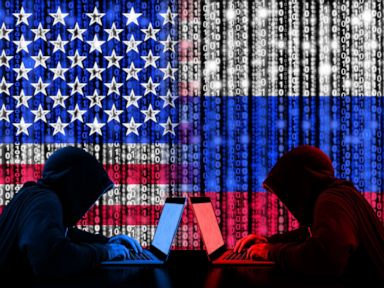
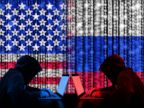

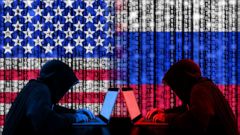
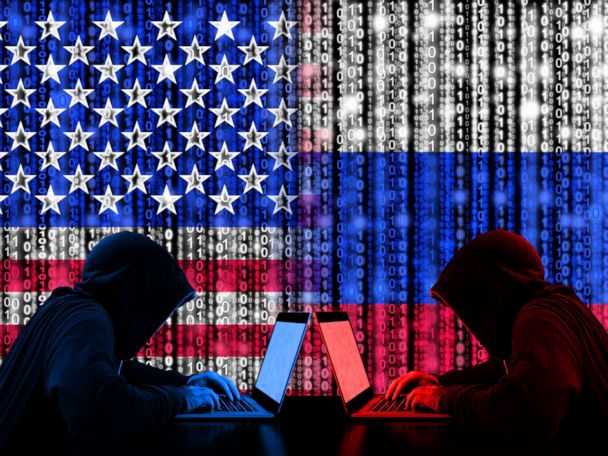
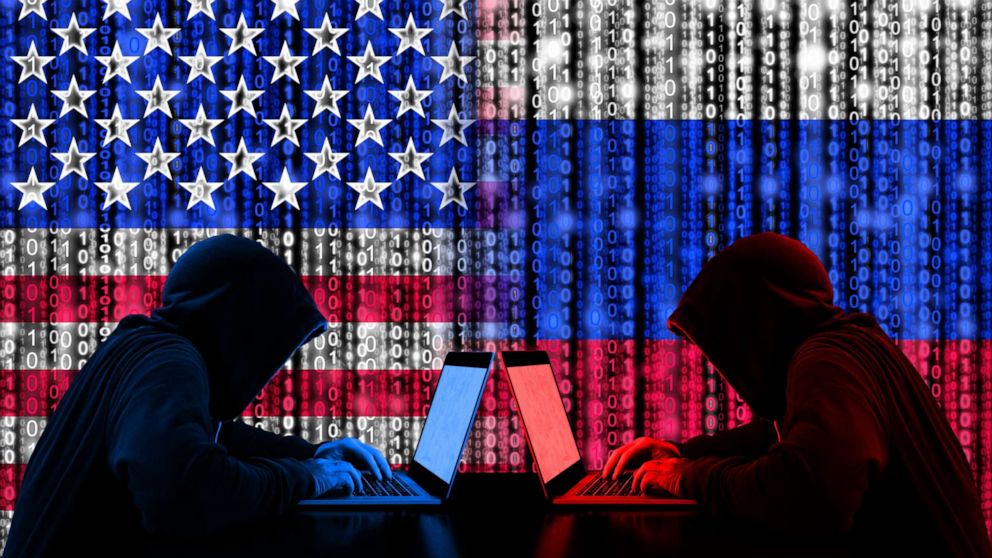
For years, the Kremlin’s power to weave disinformation into a believable narrative was a seemingly ever-present boogeyman, threatening to disrupt elections and sew discord thousands of miles away from Moscow.
Then, as Russia prepared to invade Ukraine, the tide started to turn.
From the time the Kremlin claimed the troop buildup on its neighbor’s border was simply a training exercise, the U.S. has been able to turn one of its powerful assets — classified intelligence — into an effective tool by making it public, undercutting Russian forces before they could carry out their next moves.
On Sunday, national security adviser Jake Sullivan spelled out the strategy on ABC’s “This Week,” explaining that the U.S. had publicly warned of attacks on residential areas like the apparent atrocities committee outside the capital Kyiv.
“We, in fact, before the war began, declassified intelligence and presented it indicating that there was a plan from the highest levels of the Russian government to target civilians who oppose the invasion, to cause violence against them, to organize efforts to brutalize them in order to try to terrorize the population and subjugate it,” Sullivan said.
While these disclosures have so far proven successful in uniting the West and indeed, much of the world, against Russia, whether the U.S. can maintain the upper hand in a realm traditionally dominated by Russia is still an open question.
ABC News spoke with several experts on Russia disinformation and the new U.S. strategy of selective releasing intelligence to counter it.
Waving the ‘false flag’
Over a month before the attack on Ukraine began, U.S. officials sounded the alarm, warning they had credible evidence that Russia might attempt a “false flag operation”– manufacturing a pretext to justify an invasion.
While this revelation did not deter Moscow from moving in, experts say it still made a profound difference.
“If they could have done a decent false flag operation, then it would have given some audiences reason to believe that them,” said Todd Helmus, a senior behavioral scientist at the RAND Corporation specializing in disinformation and countering Russian disinformation and a former deployed adviser to U.S. military commanders, told ABC News. “That could have sown some disunity in the western response or possibly made support for Ukraine a partisan issue. The release of intelligence took that away from Russia.”
Helmus says the U.S. striking first was critical.
“That’s the key thing in propaganda wars — the first person to get their message out really owns that space,” he said. “So for the U.S. to do the pre-bunking, they immediately own the space and put Russia on flat foot.”
After their strategy was disrupted at the jump, Russia has been unable to effectively recast the reasoning for its invasion, or portray its campaign as successful to a broad audience, according to Helmus.
“It’s hard to put lipstick on a pig as they say,” he said. “So much is going poorly for Russia that it makes it hard for them to properly message it.”
Emily Harding is deputy director of the International Security Program at the Center for Strategic and International Studies and previously served as deputy staff director of the Senate Select Committee on Intelligence. She says that while parts of the U.S.’s strategy may seem like common sense, it’s nonetheless surprising to see the country take such a proactive approach.
“It’s so shocking. The U.S. government in general is poorly placed to mix it up in the information space,” Harding said, citing the inherent limits imposed by a democratic government with strict rules regarding influencing the public and a bureaucracy that typically ensures the declassification process is slow-moving.
In recent weeks, the U.S. has gone so far as to share intelligence on the inner workings of the Kremlin, asserting that Russian president Vladimir Putin is being misinformed by his advisors because “they are too afraid to tell the truth” about their military’s failures in Ukraine—a move Harding says could be aimed at shaking the confidence of the country’s elite.
“If you’re loyal to Putin, what you’re assuming is that this guy knows what he’s doing,” she said. “A release like that might undermine that judgment.”
“I think what’s been good about these releases is that the public has seen just how good the intelligence community is at anticipating some events, at reading our adversaries, and then at providing policymakers the actionable intelligence they need to make a good decision,” she said. “Of many things in this conflict, people are going to look back at the early stages as an information warfare success.”
Meanwhile, Sarah Oates, an expert on Russian media and propaganda at the Wilson Center, says that while the Kremlin was extremely disciplined and adept in its anti-democratic propaganda and portrayal of NATO as an enemy force out to destroy Russia, Putin veered off course in the final days before the invasion.
“In many ways, we can see the invasion of Ukraine as kind of a natural outcome of this propaganda warfare that’s been going on for years and even decades,” she said. “On the other hand, in February, Putin goes completely off script. He just delves into the world of fantasy. He’s all the sudden talking about things that are completely implausible and very deniable.”
Oates says following the invasion, Russia — grasping at straws — has reverted to its traditional disinformation tactics. But now, they’re falling flat.
“I can still see echoes of that in the current information warfare strategy that Russia has carried out, particularly in the so called biological labs myth. But in general, it’s bad. It’s just bad. This is not effective propaganda,” she said.
Truth and consequences
While declassifying information has proven successful thus far, there are limits to the strategy — and risks that come along with it.
“As a former intelligence professional, every time you see information declassified, it first of all makes you swell with pride, but then also strikes terror into your heart. You’re very proud because you know what the intelligence community is capable of,” Harding said. “You also know what sacrifices were made in order to obtain that information and you worry about what the consequences might be. There are always consequences.”
She says she is confident the administration is running a comprehensive cost-benefit analysis before any information is released, and a senior intelligence official tells ABC News that “standard declassification procedures, which are in place to protect sources and methods were followed. Still, Harding notes that repercussions can be dire—including destroying invaluable working relationships with other countries and “the potential for a human being put in tremendous danger.”
Oates says there are more abstract limitations working against U.S. transparency as well, such as inadvertently providing fodder to the opposition.
“It is difficult because when we release information, it can be manipulated and used against us and woven into their narrative, like Undersecretary of State Victoria Nuland trying to say at a congressional hearing ‘well, yes, Ukraine does have biological laboratories for research,” she said, pointing out how that innocuous revelation has been twisted by various sources to claim the country is secretly developing biological weapons. “It’s like — no, she didn’t say that.”
“It’s just two completely different systems. And, in general, the Russian propaganda system has been able to run rings around the open media system of the United States,” Oates continued. “Relying on people to have news literacy or to check their sources is a little weak.”
A Russian resurgence?
Even if Russia has lost the information battle, it doesn’t mean it’s lost the information war.
“I don’t know what they got in their pocket,” said Helmus. “They’re pretty good at adapting. Their campaign targeting the U.S. in 2016 was full of adaption. They may play that game of ‘this isn’t working, let’s try this.”
Harding fears Russian failures could push the Kremlin to new extremes.
“I am very concerned that the Russian government is going to be a bit of a wounded animal right now and that they’re going to look for ways to strike out,” she said.
And Harding says the impact of that strike could be felt much closer to home.
“They’re a big government. They can walk and chew gum at the same time,” she said. “I think that it’s still entirely possible that they will be trying to play in our 2022 elections, that they’ll still be trying to sow divisions within American society, especially as this war rolls on.”
ABC’s Cindy Smith contributed to this report.

